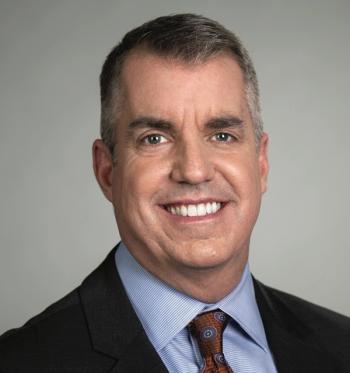
In this second of a three-part video series, Craig Samitt, CEO and president of Blue Cross Blue Shield of Minnesota talks with MHE about healthcare utilization, MLR rates and investing in telehealth models for the better care of its members.

In this second of a three-part video series, Craig Samitt, CEO and president of Blue Cross Blue Shield of Minnesota talks with MHE about healthcare utilization, MLR rates and investing in telehealth models for the better care of its members.

In this first of three-part video series, Craig Samitt, CEO and president of Blue Cross Blue Shield of Minnesota talks with MHE about healthcare utilization among its members and the elimination of low-value care.

Our top five COVID-19-related articles from 2020.

Drug and diagnostic approvals and biosimilars news were popular with readers.

New study findings demonstrate patients with treatment-resistant hypertension rarely get tested for primary aldosteronism.

From telemedicine to addressing social determinants of health, these are the top five episodes of the Tuning Into the C-Suite podcast of 2020.

In this final part of a six-part series, most are neutral-to-negative on chance of meaningful change.

How health tech was used in 2020 and an outlook on how it will be used in 2021 and beyond.

In this fifth part of a six-part series, data said respondents split on the effect of the pandemic on value-based care

The top five non-COVID-19-related news articles published on Managed Healthcare Executive® in 2020.

In this fourth part of a six-part series, data shows the pandemic severely affected revenues, expenses.

In this third of a six-part series, respondents give administration poor marks.

The most popular article from the Managed Healthcare Executive® print publication was a pre-pandemic story about the top 6 challenges facing healthcare executives.

In this second of a six-part series, the biggest concern is short supply.

In this week's episode, MHE's Senior Editor Peter Wehrwein spoke with Sumit Dutta, Optum Rx chief medical officer. The two spoke about COVID-19 vaccines and how the pharmacy benefit market responded to the pandemic.

Respondents ranked the importance of healthcare issues.

The biosimilar to Rituxan is expected to erode market share of the mainstay cancer drug for Roche.

With the number of PCPs declining, health plans can come in to support PCPs and play an active role in improving overall health literacy.


The decrease in in-person healthcare this year because of the COVID-19 pandemic could be a good thing for telehealth and programs that deliver hospital-level care at home.

The second mRNA vaccine, which does not need the extreme refrigeration of the Pfizer product, began rolling out of a warehouse in Mississippi early Sunday. Friday brought other late-year approvals in cancer treatment.

The COVID-19 pandemic has affected our lives in many ways, including how companies communicate with their employees. Many employees don’t know how to use health savings accounts (HSAs) in unison with their high-deductible health plans (HDHPs) and aren’t taking advantage of several tax saving strategies as a result.

Orgovyx, the first oral drug in its class, may help reduce clinic visits for men with prostate cancer. Fewer visits may be important during the COVID-19 pandemic.

If the pandemic taught us anything, it’s that the status quo of an inefficient, outdated healthcare system cannot continue. One thing that is changing is medical billing. Medical billing will completely change because of the events of 2020.

All the Medicare Advantage trend lines seem like they are northward bound. Enrollment, the number of plans, the number of companies selling those plans — they’re all up. So Avalere Health’s report last month on the percentage of beneficiaries in highly rated plans stood out — and not in a good way.

Many of the large insurers are responding by expanding into new markets.

TPG International Health Academy held an educational summit on COVID-19 and spotlighted were the different efforts of Japan and Sweden, as well as their eagerness toward a vaccine. Sweden rep shares the country’s “hands off approach,” while Japan looks to adapt telemedicine in their line of care.

Prostate cancer is often “indolent,” so it can be monitored and not treated right away.

In this episode, Briana Contreras of MHE spoke with Dr. David Moen, president of Prospero Health Partners. The two discussed how Prospero is closing a gap in the healthcare system by taking care of patients with chronic, serious health issues, who are not yet in hospice care, but are prone to frequent, costly hospital admissions. They also talked about the skyrocketing demand for in-home care and telehealth during the pandemic, especially for seniors with advanced illnesses and compromised immune systems.

Digital health apps offer solutions to improve diabetes self-management.